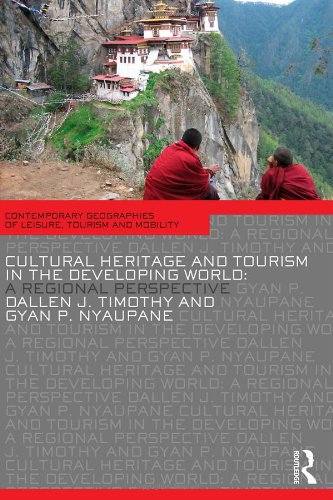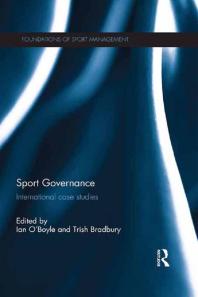This seminal book tackles the issues through theoretical discourse, ideas and problems that underlay heritage tourism in terms of conservation, management, economics and underdevelopment, politics and power, resource utilization, colonialism, and various other antecedent notions that have shaped the development of heritage tourism in the less-developed regions of the world. The book is comprised of two sections. The first section highlights the broader conceptual underpinnings, debates, and paradigms in the realm of heritage tourism in developing regions. The chapters of this section examine heritage resources and the tourism product; protecting heritage relics, places and traditions; politics of heritage; and the impacts of heritage tourism. The second section examines heritage tourism issues in specific regions, including the Pacific Islands, South Asia, the Caribbean, China and Northeast Asia, South-East Asia, Sub-Saharan Africa, Central and Eastern Europe, the Middle East and North Africa, and Latin America. Each region has unique histories, cultures, political traditions, heritages, issues and problems, and the way these issues are tackled vary from place to place. This volume develops frameworks that are useful tools for heritage managers, planners and policy-makers, researchers, and students in understanding the complexity of cultural heritage and tourism in the developing world. Unlike many other books written about developing regions, this book provides insiders’ perspectives, as most of the empirical chapters are authored by the individuals who live or have lived in the various regions and have a greater understanding of the region’s culture, history, and operational frameworks in the realm of cultural heritage. The richness of this ‘indigenous’ or expert knowledge comes through as each regional overview elucidates the primary challenges and opportunities facing heritage and tourism managers in the less affluent areas of the world.
چکیده فارسی
این کتاب مهم از طریق گفتمان نظری، ایدهها و مشکلاتی که زیربنای گردشگری میراث را از نظر حفاظت، مدیریت، اقتصاد و توسعه نیافتگی، سیاست و قدرت، استفاده از منابع، استعمار و مفاهیم پیشین دیگری که توسعه را شکل دادهاند، میپردازد. گردشگری میراث در مناطق کمتر توسعه یافته جهان کتاب از دو بخش تشکیل شده است. بخش اول پایه های مفهومی گسترده تر، بحث ها و پارادایم ها در حوزه گردشگری میراث در مناطق در حال توسعه را برجسته می کند. فصول این بخش به بررسی منابع میراث و محصول گردشگری می پردازد. حفاظت از آثار میراث، مکان ها و سنت ها؛ سیاست میراث؛ و اثرات گردشگری میراث بخش دوم به بررسی مسائل گردشگری میراث در مناطق خاص، از جمله جزایر اقیانوس آرام، آسیای جنوبی، کارائیب، چین و آسیای شمال شرقی، آسیای جنوب شرقی، جنوب صحرای آفریقا، اروپای مرکزی و شرقی، خاورمیانه و شمال آفریقا، و آمریکای لاتین. هر منطقه دارای تاریخ، فرهنگ، سنتهای سیاسی، میراث، مسائل و مشکلات منحصربهفردی است و نحوه رسیدگی به این مسائل از مکانی به مکان دیگر متفاوت است. این جلد چارچوب هایی را توسعه می دهد که ابزارهای مفیدی برای مدیران میراث، برنامه ریزان و سیاست گذاران، محققان و دانشجویان در درک پیچیدگی میراث فرهنگی و گردشگری در کشورهای در حال توسعه هستند. برخلاف بسیاری از کتابهای دیگر که در مورد مناطق در حال توسعه نوشته شدهاند، این کتاب دیدگاههای خودی را ارائه میدهد، زیرا اکثر فصول تجربی توسط افرادی نوشته شدهاند که در مناطق مختلف زندگی میکنند یا در مناطق مختلف زندگی میکنند و درک بیشتری از فرهنگ، تاریخ و عملیات منطقه دارند. چارچوب در حوزه میراث فرهنگی غنای این دانش «بومی» یا متخصص زمانی به دست میآید که هر مرور منطقهای چالشها و فرصتهای اولیه پیش روی مدیران میراث و گردشگری در مناطق کمتر ثروتمند جهان را روشن میکند.
ادامه ...
بستن ...








![Our mission to the court of Marocco [Morocco] in 1880, under Sir John Drummond Hay - pdf Our mission to the court of Marocco [Morocco] in 1880, under Sir John Drummond Hay - pdf](https://dl.libsan.ir/images/1/12/112108724_694b9e9769312.jpg)

